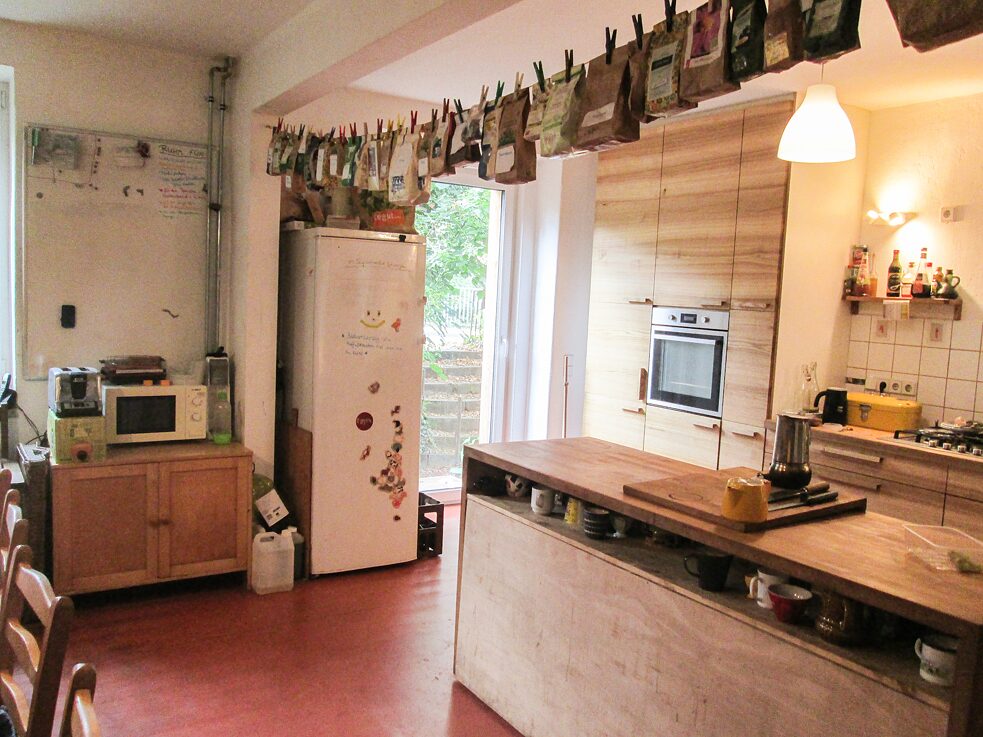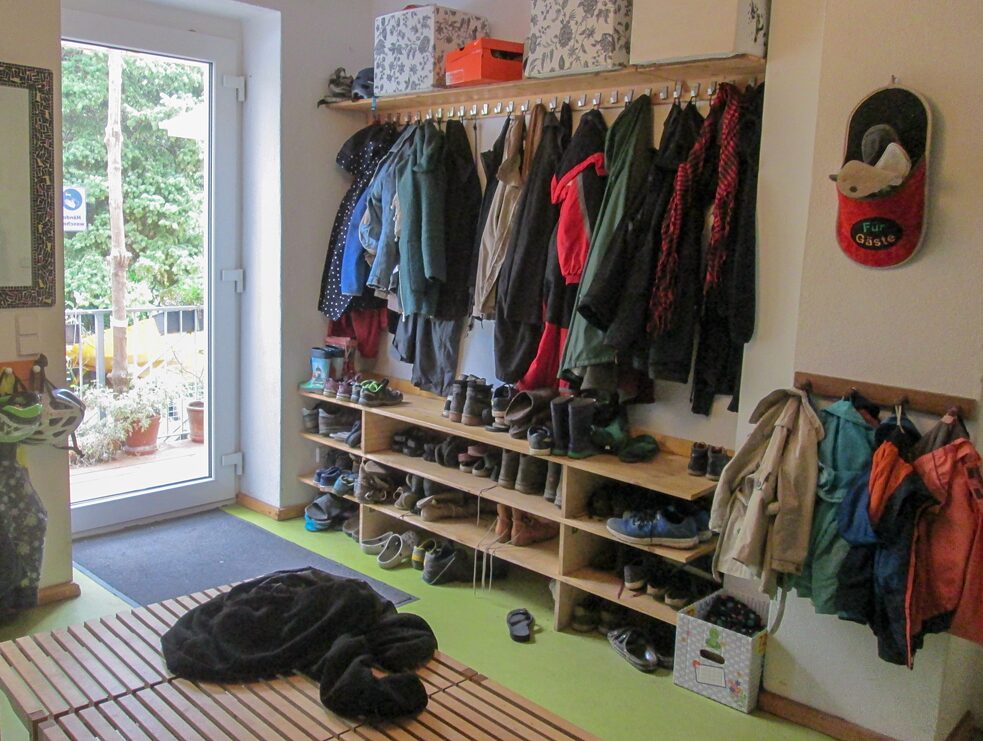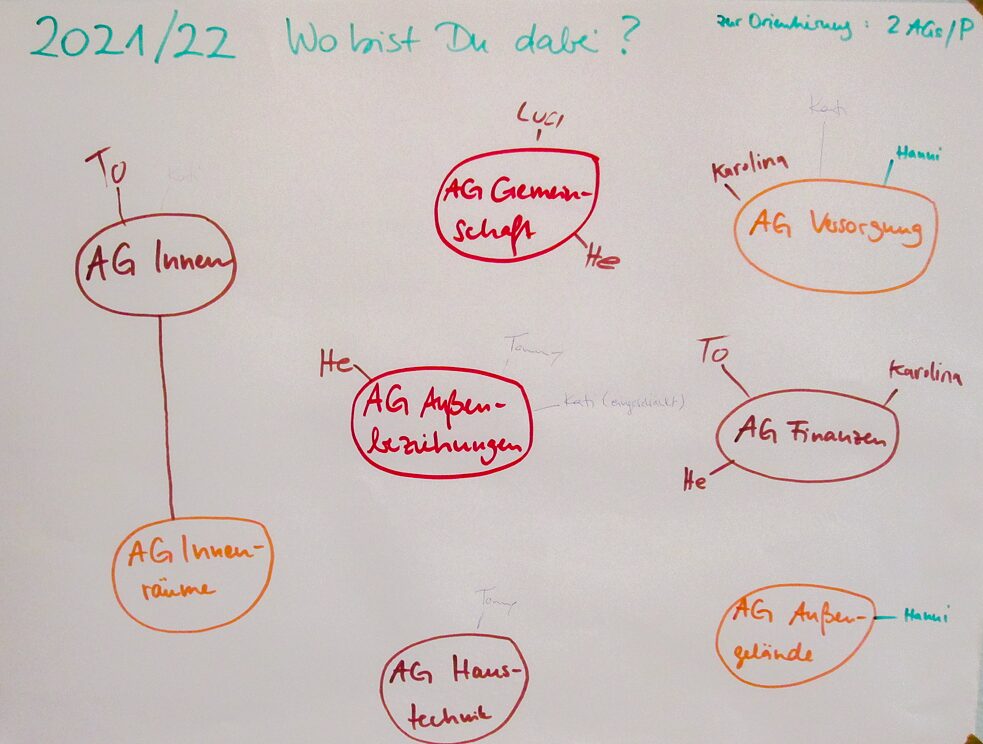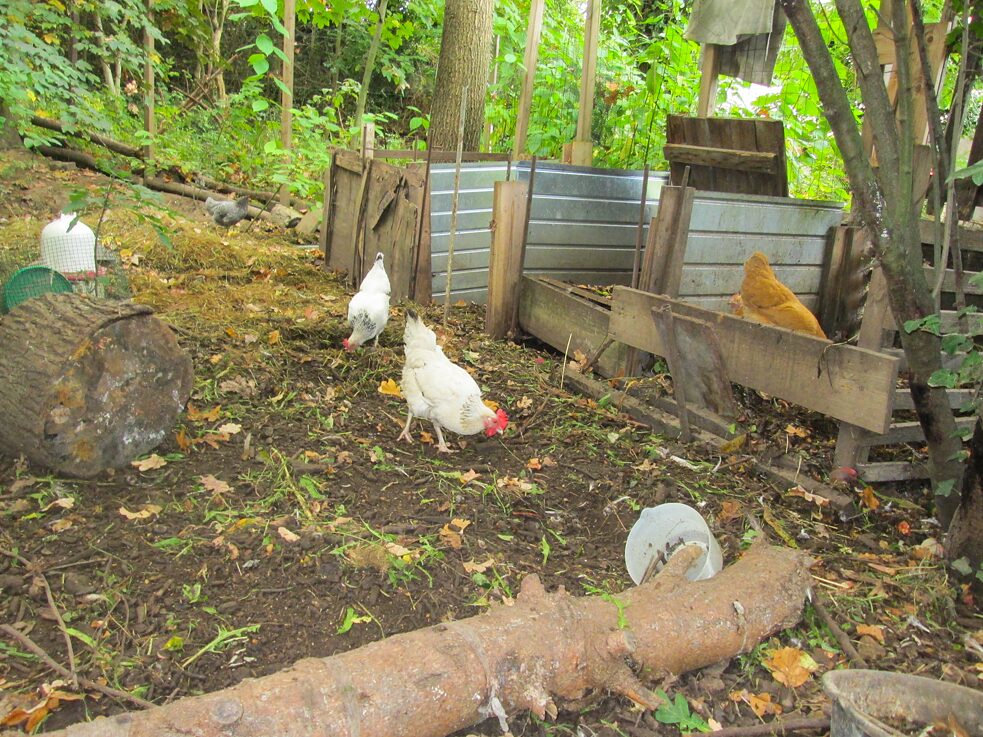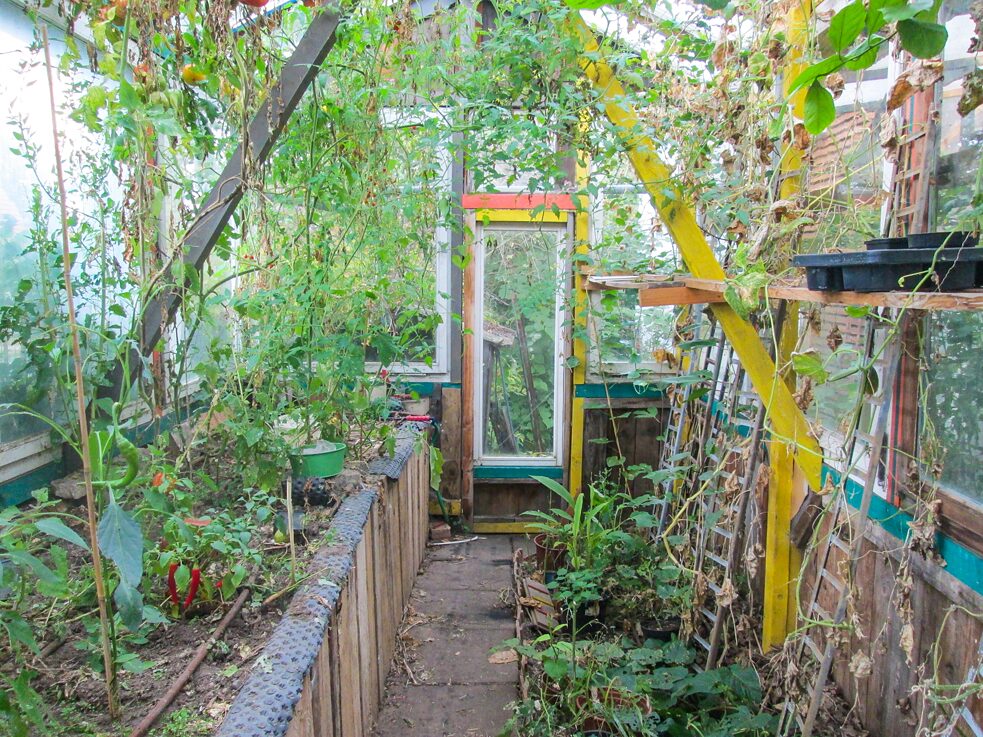Sustainable Communities
2n40: from cooperative apartment building to solidarity-based cohousing project
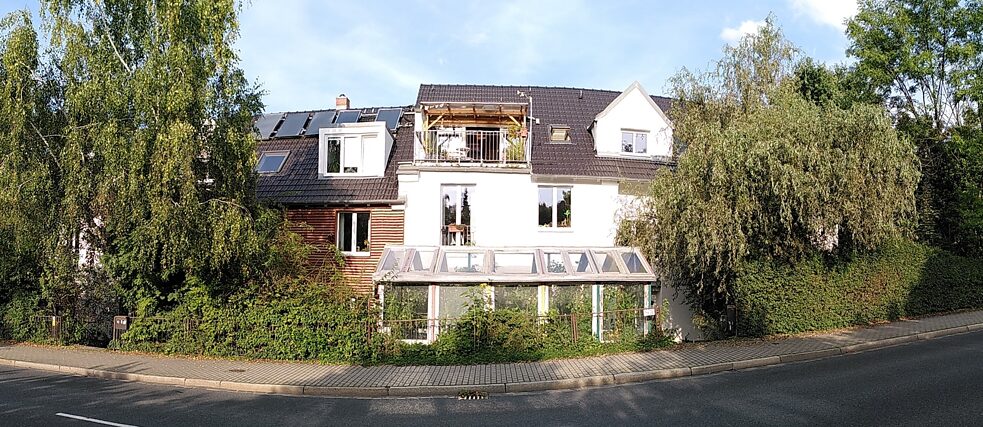
By Marina Bierbrauer
Two semidetached apartment buildings, comprising a total of eight 60 m² apartments, have been converted into a single shared dwelling for a group of around 25 children and adults. The former cooperative apartment building, dating from 1919, is located on the southern outskirts of Dresden, almost in the countryside, but with easy access to all the facilities of a major city. The story began when a group of friends and acquaintances – families and people living on their own – started looking around for somewhere to live. The search was a very short one: the building was bought by auction in 2013, and following extensive refurbishment and renovation works, including extensions to the roof framework, they moved into their new home, baptised the “2n40” cohousing project. The name is a play on words, based on the street addresses of the original buildings (numbers 41 and 43), and an important number in a certain popular book series and film (and note when read out in German, “2n40” sounds like the number “42”).
Apart from the two staircases leading up from the street, few traces remain of the original two standard multi-apartment buildings. Along with family and multi-tenant apartments, the cohousing project in its current form includes plenty of shared space. My friendly guide during my visit was Tilman, who said that he and his family had been part of the project from the start. He invited me to join them for breakfast, before showing me through the house, from top to bottom.
Good reasons for community living
As far as the residents of 2n40 are concerned, living in a large community is really nothing new, but rather a way of meeting a perfectly normal human need. Multigenerational living was once the norm, but since industrialisation, has increasingly become the exception. The statistics tell a story of more and more one- and two-person households, with ever-increasing floor areas per person. That means more space is needed for housing, with negative impacts on resources, the environment and rents.Solidarity-based community living
The residents identify positive communication and interaction, mutual acceptance and support, and personal fulfilment as important criteria for harmonious community living. Privacy and the ability to be on your own are just as essential as building a community that enables everyone to contribute what they can and feel happy with. There is a large garden available to all residents, and other common-use spaces include a shared kitchen with dining and living area, an office, and a games room for the children. Children in particular benefit from growing up together, Tilman tells me.A range of work groups have been set up for managing the various chores in and around the house, in which residents participate according to their interests and preferences. Group reinforcement and support is treated as an ongoing work in progress, rather than just being left to chance. Fortnightly plenary meetings, decision-making by consensus, an annual group weekend at an external venue and support from a professional mediator once or twice a year have been found to be effective methods for building group cohesion.
Syndicate structure to escape the clutches of a profit-driven property market
The cohousing project is a member of the Mietshäuser Syndikat, or “apartment-building syndicate”, which basically has the function of providing advice and support for setting up and funding such projects. The organisation now includes more than 150 cohousing projects. As the admission criteria, the group must be self-administering, and must agree to the solidarity transfer levy and commit to not reselling the property – by joining the syndicate, the group agrees that the property will be permanently withdrawn from the real estate market. This is mainly to ensure that this housing space will continue to be available for future generations. Each project is legally structured as a limited liability company (GmbH in German), owned 51% by the residents’ association and 49% by Mietshäuser Syndikat. Projects are financed by direct loans (junior loans), equity, and bank loans, in varying proportions according to the situation. Bank loans are in the form of KfW (German Reconstruction Loan Corporation) development funds, or are obtained from sustainable and ethical institutions such as cooperative banks, GLS or Ethikbank.The project essentially aims to cover costs rather than to make a profit: this makes it possible to minimise rents, which are negotiated within the 2n40 project at regular intervals, using a solidarity-based process. Each party submits an anonymous offer – those amounts are then added together and compared against the project running costs. If there is a shortfall, another consultation process is started. This has worked well so far, Tilman says, with no more than three consultation rounds ever having been needed. Individual rents are based not only on m2 of private living area, but also the tenant’s individual (financial) situation.
Solidarity-based produce purchasing
The cohousing project has a harvesting share in the Schellehof farm in Struppen. Under a solidarity-based farm produce purchasing arrangement, each member of the solidarity community pays a fixed monthly amount to the farm, receiving in return a weekly food package, mainly fruit and vegetables, but also cereals, bakery goods or dairy products, all direct from the producer, regional, in season and organic. To spread the word about the solidarity-based produce purchasing principle and enable more people to sign up, a food depot for neighbours is located on the project site. Further food products are also sourced from a farmer in the region, directly and with no circuitous transport routes.The project also grows some of its own food, in the garden and the on-site glasshouse – and now also gets fresh eggs from its own hens. Any further food required is ordered monthly from an organic wholesaler. That allows some goods to be supplied without packaging, and there are significant cost savings from ordering bulk quantities. Foodstuffs are financed on a community basis, applying the same solidarity principle as with tenants’ rents.
Running a sustainable household
Upcycling, sharing, buying used equipment and keeping items in use for as long as possible are widely followed practices across many aspects of the project. The solar plant for heating and hot water was purchased second-hand, and there are plans to extend it to provide all the project’s heating requirements in summer. Until then, the pellet burner will continue to be used for heating the building and for the showers. The old windows have been turned into a glasshouse, so are still serving a useful purpose. Thanks to the location on the outskirts of a major city, there is easy access to frequent public transport services. Cycles and an E-scooter are available for tenants to use, not to mention a bus and a few cars brought into the project by some of the tenants. These are shared around as needed on the rare occasions when private motor transport is required.As well as creating a functional housing and business model for the community, the 2n40 cohousing project provides a more fulfilling and enjoyable lifestyle for its residents. The success of the project is confirmed by a low tenant turnover rate, and the residents look forward to many more years of living and growing together, into future generations.
